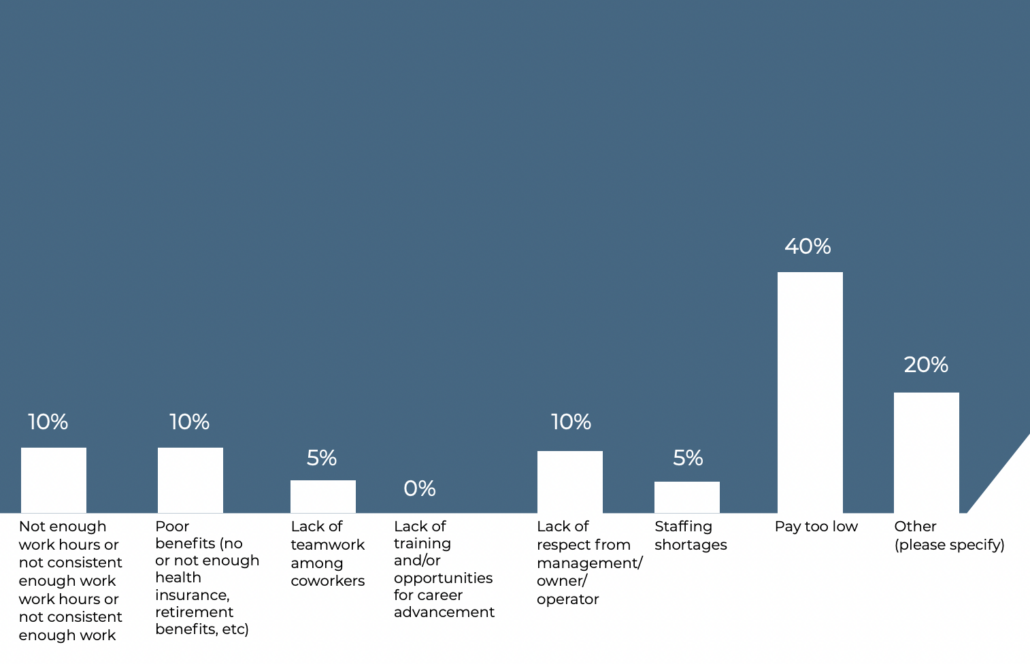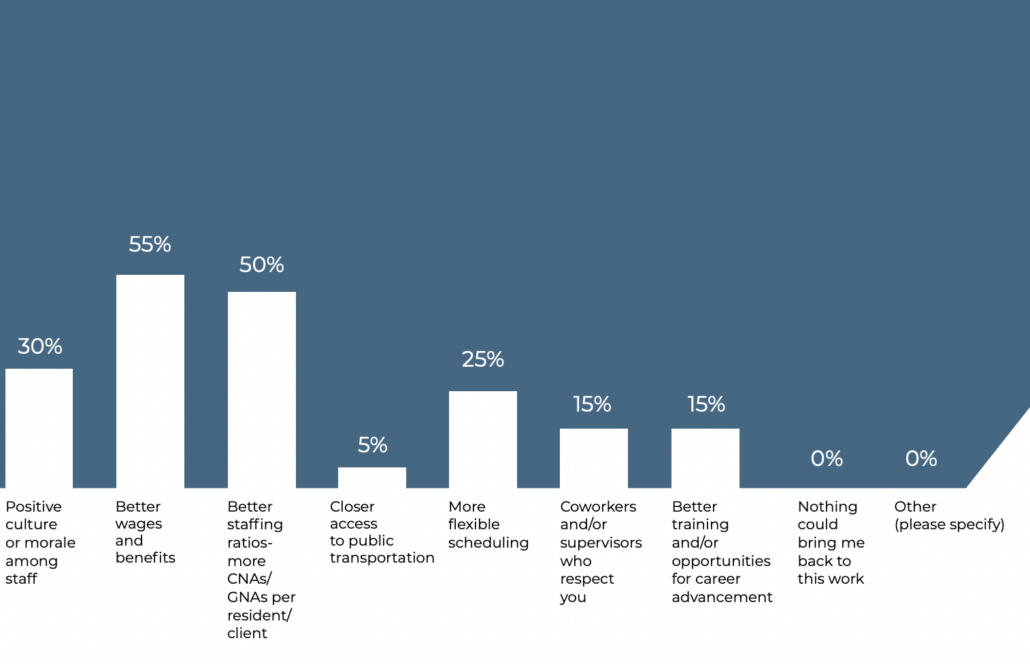The Maryland Regional Direct Services Collaborative (Collaborative) is a coalition of individuals and entities committed to addressing the challenges of the direct care and services workforce in the Maryland region.
As such, the Collaborative connects diverse stakeholders and perspectives to facilitate and develop solutions that improve wages and benefits — as well as training, recruitment, retention, and career path development — for professionals who provide direct care and supportive services across long-term services and supports (LTSS) settings.
As a trusted resource, subject matter expert, and leader in capacity building, the Collaborative seeks to address the LTSS workforce challenges faced by Maryland workers and employers alike.
Our 2023 report on long-term services and supports in Baltimore offers a framework for improving job quality and creating a highly trained direct care and services workforce.
Through research and in-depth stakeholder interviews, the following themes emerged:
Inadequate compensation is the single biggest factor driving the workforce crisis.
Nearly all stakeholders, including DSWs, recognize that wages are not high enough to compete with restaurant and retail wages, and many are aware that they do not meet the criteria for a living wage. Further, in some LTSS settings, such as home care, lack of benefits may be tied to the practice of misclassifying workers as independent contractors, which denies them employment benefits such as earned sick or vacation leave, extra pay for overtime hours, or even protection by workers’ compensation programs.
Medicaid reimbursement rates are not high enough to allow many LTSS providers to increase wages to necessary levels.
Because so much of the care provided in Baltimore and throughout Maryland is funded by Medicaid, the program’s reimbursement rates drive workforce dynamics. Providers and advocates consistently assert that Maryland’s reimbursement rates have not increased at a level necessary for LTSS owners and operators to offer competitive compensation to DSWs.
DSWs in nursing homes and assisted living facilities see low staffng ratios as diminishing job quality.
Nearly all DSWs in these settings report dissatisfaction with staffing ratios. Many say that these low ratios make it very difficult to provide the level of care that they want, or are able, to provide. The increased workload that results from low staffing ratios adds to burnout and exhaustion, as well as the feeling that DSWs are being asked to do the jobs of two or three people.
Respect and appreciation help but are insufficient on their own.
DSWs point to symbols of appreciation from their employers as improving their job satisfaction, which may improve retention on the margin. However, respect and appreciation will not alone solve the systemic problems underlying the workforce crisis.
Holistic training and support are appreciated, but also are insufficient on their own.Toggle Title
Similarly, good quality training provided in conjunction with holistic supports and wraparound services can help provide DSWs with the tools they need to obtain certifications, feel supported in their workplaces, and remain in care jobs. However, training and support alone will not solve the problem.
In response to a question about what motivates, or has motivated, DSWs to leave their jobs, the majority of respondents indicated it was due low pay, followed by “not enough work hours or not consistent enough work” and “poor benefts,” and “lack of respect from management/ owner/operator.”

When asked what it would take for an employer to hire them back, the plurality of 11 respondents chose “better wages and benefts,” followed closely by 10 selecting “better staffng ratios” (more CNAs/GNAs per resident/client). Six chose “positive culture or morale among staff.”


